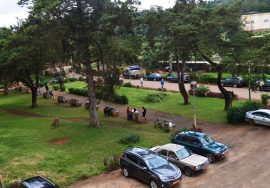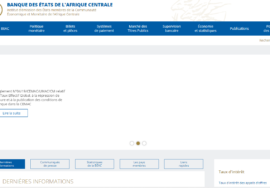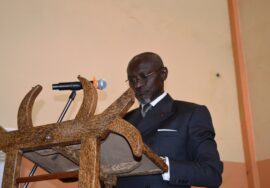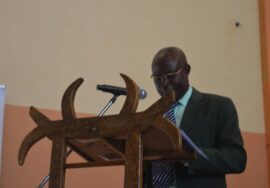
UDs/GICAM Cooperation
Dialogue of stakeholders is key for development..GICAM President
Dschang/UDs/SIC, 08/05/2021. During the ceremony of the presentation of the white paper of GICAM to the University of Dschang on the 08th of April 2021 at the Conference hall, the President of GICAM, Mr. Celestin Tawamba highlighted the vision of GICAM, stating that it focuses on practices and realities from experiences gathered from the field. Indicating that the presentation of the white paper in the University of Dschang is due to the institutions’ pivotal role in entrepreneurship within the economy of Cameroon. He presented a team of experts, stating that GICAM was founded in 1957. In the white paper presented, the cause of the downward economic move is diagnosed, employment problems, the future of the youths and proper reforms as an indispensable solution to curb the complicated finance and taxation aspects that retards the emergence of Cameroon is discussed. It advocates dialogue between the state and the private sectors and contains concrete propositions; to be tabled to the Cameroon Business Forum as such this forum for debate and exchange is timely, meeting theories with realities he added.
The President reiterated “…The importance of the document is to share the vision of the group and put at the disposition of its partners which are the state, state universities, to bring them to the awareness of what is happening in our economy and as well as compare our economy with other economies, to analyze the reason for difficulties as well as advantages in a bid to assemble these advantages to birth a modeled economy. This can only come about by means of critics from other stakeholders justifying the reason for our coming to the university of Dschang where our perspectives will be challenged and enable us to achieve our goal. This is because universities have the capacity to test models, a reason why we propose our models should spring forth debates so that together we will build a better Cameroon by ameliorating dialogue between the State and the private sector as well as universities which are an integral part of a constructive economy. L.D







